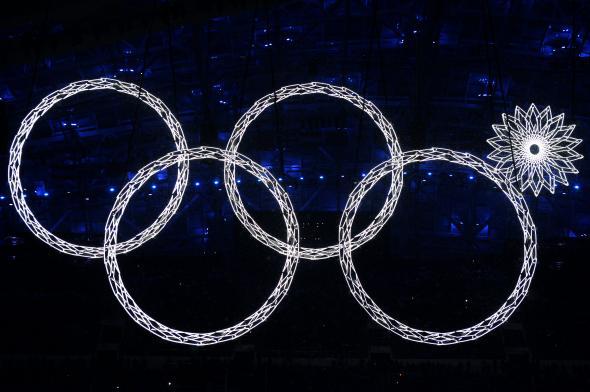The International Olympic Committee ruled Sunday that Russian athletes will be able to compete in the Rio Olympics next month, despite evidence of a widespread, state-run doping program. While not imposing a blanket ban on all Russian athletes, the IOC decision lays out specific, more stringent criteria for the roughly 400 Russians scheduled to participate in Rio. The decision about whether individual Russian athletes will be eligible to compete is being left to each sport’s governing body.
In May, Grigory Rodchenkov, the former head of Russia’s anti-doping lab, confessed to the New York Times that the country was engaged in a well-planned, state-run doping program. Rodchenkov “shared spreadsheets of the athletes who participated in it and the recipe of the three-drug cocktail of steroids and liquor he had devised for them ahead of the 2012 Summer Games in London,” according to the Times. Last week, a report by the World Anti-Doping Agency determined that Russia’s sports ministry “directed, controlled and oversaw” the altering of athletes’ urine samples. Russian officials have vehemently denied the allegations, with Vladimir Putin labeling them the work of Western, anti-Russian forces.
Calls to sanction the Russian Olympic team have grown louder over the past three months with the Rio Games set to open on Aug. 5. In advance of Sunday’s decision from the IOC, some individual governing bodies, including those that sanction track and field and weightlifting, imposed bans on Russian athletes.
It’s not completely clear what the new criteria laid down for Russian athletes will mean for the country’s Olympic delegation. The governing bodies for each of the 28 Olympic sports “should carry out an individual analysis of each athlete’s anti-doping record, taking into account only reliable adequate international tests, and the specificities of the athlete’s sport and its rules, in order to ensure a level playing field,” according to the IOC. With the Olympics starting in less than two weeks, the process of clearing an athlete remains murky. The new criteria, however amorphous, will likely reduce the number of Russian athletes competing in Rio.
One Russian athlete who won’t be in Rio is Yuliya Stepanova. The 800-meter runner served as a whistleblower, revealing some of the machinery of the Russian doping system. On account of the information she revealed, the governing body of track and field had decided to allow her to compete in the Olympics as an “independent neutral athlete.” The IOC has now reversed that decision.
The head of the U.S. anti-doping body, Travis Tygart, has criticized the IOC decision: “The IOC has stated before that they believe anti-doping should be wholly independent, and that is in part why it is so frustrating that in this incredibly important moment, they would pass the baton to sports federations who may lack the adequate expertise or collective will to appropriately address the situation within the short window prior to the Games. The conflict of interest is glaring.”
